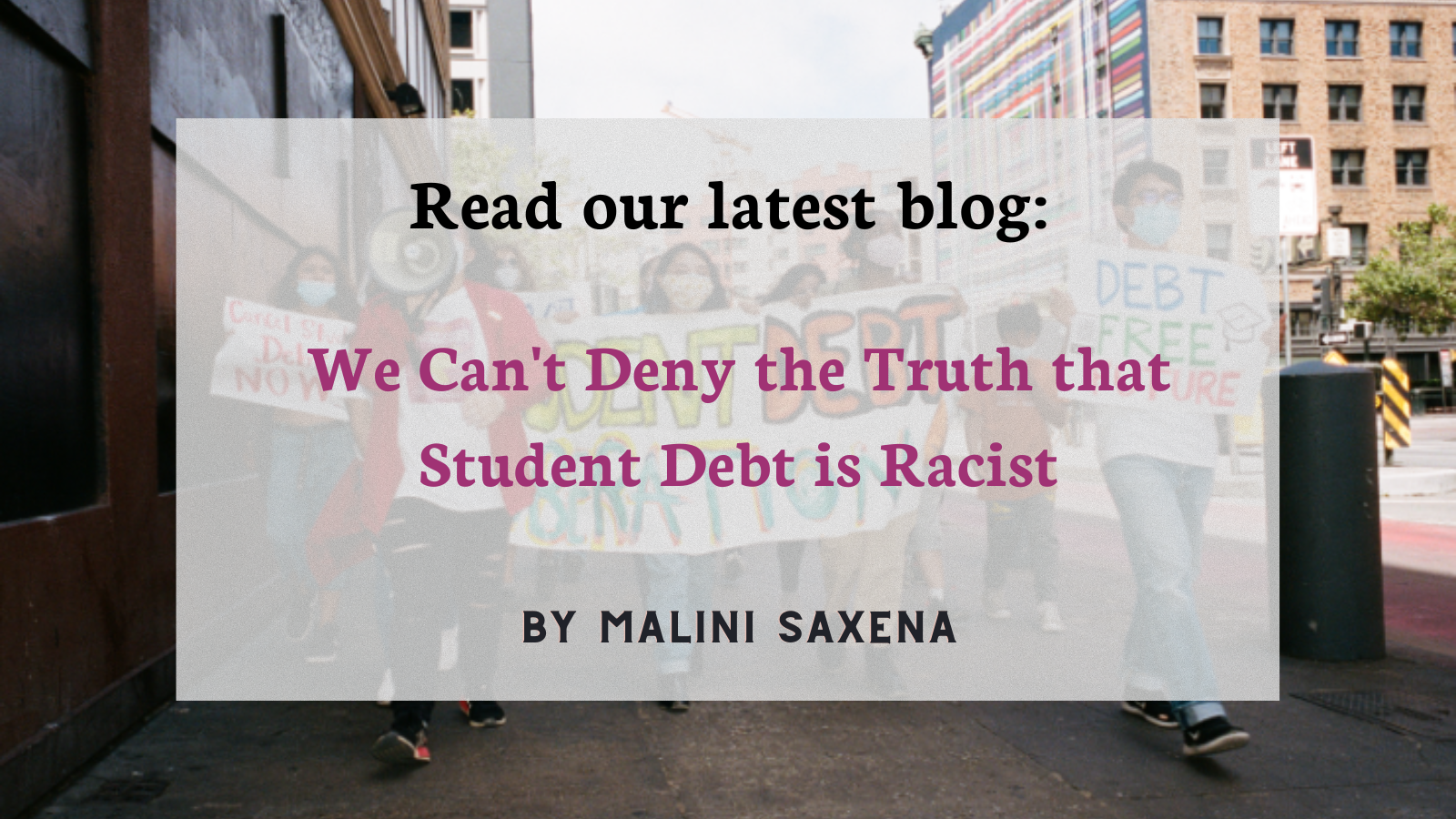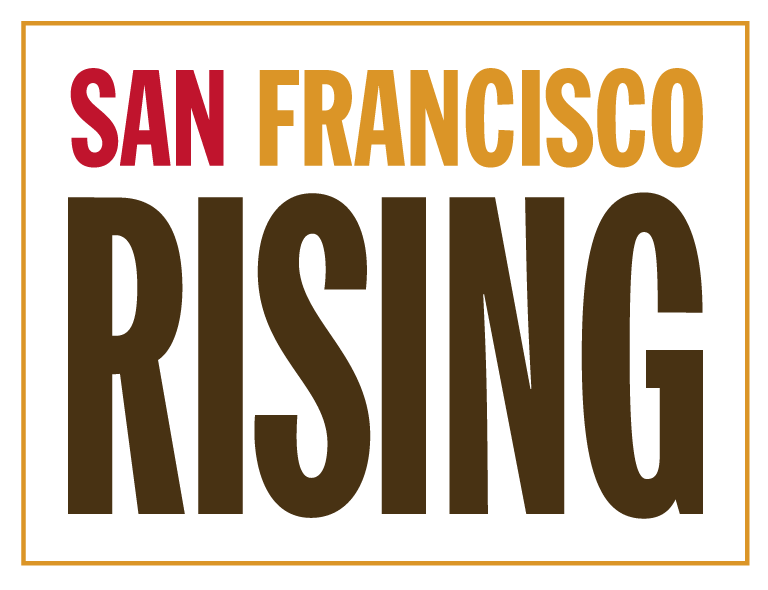by Malini Saxena
Student debt is racist. Yes, I said it.
Quite a bold assumption to say the least, but let us explore.
As a current student at San Francisco State University, I see the impact of high tuition costs subjected to students. Students like me struggle with the skyrocketing cost of tuition. With the privilege of access to community college out of high school, I was able to attend college at a much lower cost. This adjustment in my educational journey allowed me to transfer to SFSU without having to take out any loans. Had I not had the opportunity to go to community college, I would be in debt as well. But unfortunately, not all people have access to attend a community college with free or low-cost tuition. The student debt crisis in our country continues to balloon everyday, now nearly touching $2 trillion.
To many the issue seems distant. To me it’s a reality for many friends and peers, grappling to pay off student debt and make ends meet. So while Biden’s plan to combat student debt is a step in the right direction, does a Band-aid help a bruise? When you step away from the central issue of the student debt crisis, a bigger picture unfolds; Black borrowers are disproportionately impacted by student debt in comparison to their white peers.
Biden’s plan to exonerate $10,000-20,000 of debt only covers the bare minimum for a disproportionate number of Black students, while nearly eliminating a larger share of white borrowers’ debt. Not only will this eliminate the debt of many white borrowers, but also the consequences of having debt. Whereas Black borrowers will be at a disadvantage yet again, continuing to deal with the issue.
By simply looking at how much is owed on average, it is not unreasonable to claim that Black students take on more debt than white students. Black students owe approximately $52,000 in debt on average. In contrast, white students have an average of $31,000 in debt.
By only canceling some student debt, white borrowers will have comparatively more of their debt cleared.
On average, Black students owe $25,000 more in student loans than white students. This is where generational wealth comes into play. The disparity begins from the root: household incomes and parents’ ability to contribute to tuition.
That is nearly nine times the median net worth of Black households. As a result, white families are twice as likely to contribute to tuition in comparison to Black families—the simple answer as to why they’re able to do so is generational wealth, the ability to accumulate and pass down assets over generations.
In a system built to keep the rich richer and the poor poorer, generational wealth has become seemingly impossible to acquire in this country. Black families are marginalized through racist policies such as redlining and segregation, playing a critical role in why they are at a disadvantage in accruing this wealth. They simply aren’t given the resources to pay for college without student loans.
As if struggling to pay for college wasn’t enough, the struggle continues as Black borrowers face wage gaps in the workforce. In fact, there is a huge disparity in the wages of Black and white students, which nonetheless, impacts their ability to repay loans.
Because Black graduates have lower wages, they struggle more to not only repay debts but to provide themselves with a secure and stable future, putting off major life milestones like getting married, having children, and buying their first homes due to student loans.
The stark difference in wages is an effect of a society that does not work in favor of Black students and employees. The system perpetuates a cycle of never-ending struggle. Students take loans to gain an education and end up with crippling debt and having to delay major life achievements.
The discourse around canceling student debt seems so out of touch when you can see how it clearly impacts an entire group of people more significantly. If Biden were to cancel $50,000 student loans per borrower, Black Americans’ wealth would increase by 40%. Is that not reason enough? It’s absurd in this day and age to still be arguing about whether Black students would unjustifiably benefit from student debt cancellation when the numbers make the answers so clear: yes.
Not everyone has the ability and resources to pay for college. Being able to do so is a privilege that many of us do not realize. What’s alarming is this country prides itself on the opportunities we offer, yet little effort is made to help those who are suffering at the hands of an unjust system. The student debt crisis is very much a racial justice issue and denying that neglects the harsh reality of students countrywide. We must cancel student debt and keep taking steps to ensure that anyone who wants to go to college in our country can, regardless of their income, wealth, or race.



